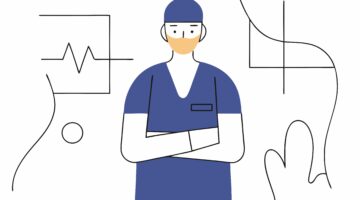Cardiac medical device maker AtriCure (NASDAQ:ATRC) sees big opportunity in a new “hybrid” procedure that treats atrial fibrillation with a combination of ablation from inside and outside of the heart.
But the Cincinnati-area company will likely have to wait awhile before it begins to cash in on what CEO David Drachman has called a $2 billion market associated with the procedure. CFO Julie Piton estimates the company won’t obtain the regulatory approval that would enable AtriCure to begin marketing its device for the procedure, which it calls DEEP (dual epicardial/endocardial procedure) AF, until 2015 — at the earliest.
Nonetheless, that long wait time hasn’t slowed investors’ or analysts’ enthusiasm about the potential the hybrid procedure holds for AtriCure.
“It’s a huge opportunity for the company, one of their biggest opportunities to create value,” said Matt Dolan, a senior research analyst with Roth Capital Partners.
Thom Gunderson, a senior research analyst with Piper Jaffray, reiterated that thought — assuming clinical testing shows that the procedure is effective in treating atrial fibrillation (AF), a condition characterized by abnormal heart rhythms that are associated with electrical-impulse problems in the heart.
“If you can come up with a single therapy that reduces or eliminates the risk of AF, that’s a big deal,” Gunderson said.
AF is also a fairly big problem and thus a large and potentially lucrative market. The American Heart Association estimates that about 2.2 million Americans suffer from the disorder (AtriCure puts the worldwide number at 5.5 million). The AHA estimates that between 3 percent and 5 percent of people older than 65 suffer from AF and about 15 percent of strokes occur in people with AF.
“AF is a large and undertreated medical problem in the U.S.,” Gunderson said.
Because drugs alone don’t always work to treat AF, patients are often treated with catheter ablation, a process that typically involves snaking a thin tube through a patient’s veins to his heart and then using energy delivered to the catheter’s tip to create lesions on the heart muscles to interrupt the abnormal electrical signals.
But some patients suffering from persistent or long-standing AF need more than just catheter ablation, and that’s where AtriCure’s DEEP AF hybrid procedure comes in. It’s called a hybrid because it combines catheter ablation, which occurs inside the heart, with a minimally invasive ablation procedure that creates lesions on the outside of the heart.
“Some of the drawbacks of catheter ablations can be overcome with these hybrid procedures,” Dolan said.
The outside portion of the surgery is done by a cardiac surgeon who performs the ablation via three small incisions between the ribs on each side of the heart, according to Piton, AtriCure’s CFO. An electrophysiologist performs the catheter ablation with the aid of imaging technology.
AtriCure plans to seek approval from the U.S. Food and Drug Administration to label its bipolar ablation system for the treatment of AF. FDA approval of the new label would allow the Cincinnati company to begin marketing its device to doctors as an option for treating AF — an important step to increasing sales of the device.
“Who’s going to know about it if you can’t talk about it?” Gunderson said.
To that end, AtriCure has enrolled 12 of a projected 30 patients in a “feasibility” trial of the DEEP AF procedure. Piton said the company hopes to complete enrollment by the end of the year. Next year, the company plans to begin a much larger, “pivotal” trial that would involve 35 surgical centers, up from six in the feasibility trial.
If the trials show that the procedure is safe and effective, it could augur big things for AtriCure, a relatively small company that recently recorded its first-ever profitable quarter and brought in $60 million in revenue last year.
“If we were to secure an AF label, we believe it would be an inflection point for AtriCure,” Piton said. “It would allow us to capitalize on our leading technologies to leverage a market opportunity of $2 billion in the U.S. and serve a patient population that is not effectively treated today.”










